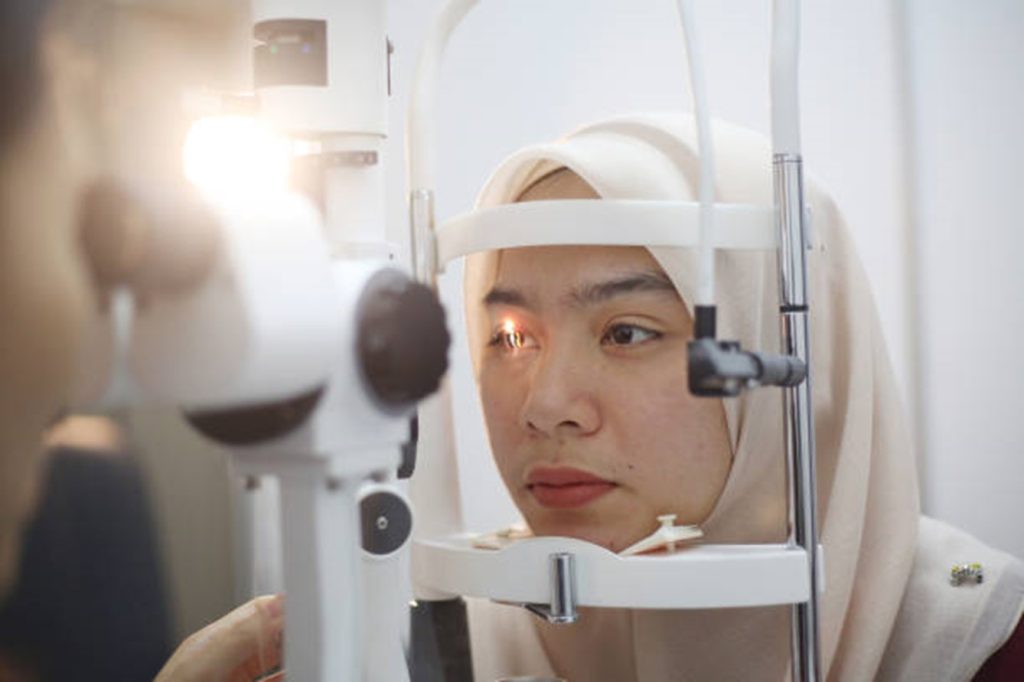

Image source – istock
In the hustle and bustle of our daily lives, it’s easy to overlook the importance of maintaining our eye health. Our eyes are not only windows to the world but also vital indicators of our overall well-being. One crucial aspect of comprehensive eye care that often goes unnoticed is the retinal exam. In this article, we’ll delve into the significance of retinal exams, exploring how they play a pivotal role in safeguarding both your vision and overall health.
Understanding the Retina: A Gateway to Vision
The retina, often referred to as the “film” of the eye, is a complex layer of tissue located at the back of the eye. Its primary function is to capture light and convert it into electrical signals that the brain interprets as images. The health of the retina is paramount to clear vision and overall eye function.
Importance of Regular Retinal Exams
Early Detection of Eye Diseases:
Regular retinal exams are instrumental in the early detection of various eye diseases, such as glaucoma, macular degeneration, and diabetic retinopathy. These conditions often develop without noticeable symptoms in their initial stages, making routine exams crucial for timely intervention.
Prevention of Vision Loss:
Timely identification and management of eye diseases through retinal exams can prevent irreversible vision loss. For instance, diabetic retinopathy, a complication of diabetes, can lead to blindness if left untreated. However, with regular retinal screenings, the progression of such conditions can be effectively managed, preserving vision.
Insight into Systemic Health:
The eyes are not isolated from the rest of the body. They can provide valuable insights into your overall health. Changes in the blood vessels, optic nerve, or other structures in the eye may indicate underlying health issues, such as hypertension or diabetes. By addressing these issues early on, you can protect not just your vision but your overall well-being.
Personalized Treatment Plans:
Retinal exams enable eye care professionals to develop personalized treatment plans based on the specific needs of each individual. Whether it’s through medication, surgery, or lifestyle changes, early intervention guided by the results of retinal exams can significantly improve treatment outcomes.
The Retinal Exam Process
Understanding what happens during a retinal exam can help alleviate any concerns you may have. The process typically involves the following:
Dilation of Pupils:
To get a clear view of the retina, your eye care professional may use dilating eye drops, which temporarily enlarge the pupils. While this may cause sensitivity to light and blurred vision for a few hours, it’s a crucial step in ensuring a comprehensive examination.
Digital Imaging and Scans:
Advanced imaging technologies, such as optical coherence tomography (OCT) and fundus photography, allow for detailed scans of the retina. These images provide a comprehensive view of the retinal layers, aiding in the detection of abnormalities.
Visual Inspection:
The eye care professional will visually inspect the retina, checking for signs of disease, damage, or irregularities. This meticulous examination is key to identifying issues that may not be evident through imaging alone.
Tonometry and Blood Flow Assessment:
In some cases, additional tests may be conducted to assess intraocular pressure and blood flow to the eyes. These measurements can provide further insights into the health of the optic nerve and surrounding structures.
Conclusion
In conclusion, the importance of retinal exams in comprehensive eye care cannot be overstated. Beyond preserving vision, these exams serve as a gateway to detecting and managing a myriad of eye diseases and underlying health conditions. By prioritizing regular retinal screenings, you are taking a proactive step towards safeguarding not only your vision but also your overall health.
Remember, your eyes are invaluable, and investing in their care today ensures a clearer, healthier tomorrow. Schedule your retinal exam today and embark on a journey of proactive eye health maintenance. Your vision—and your well-being—deserve it.
